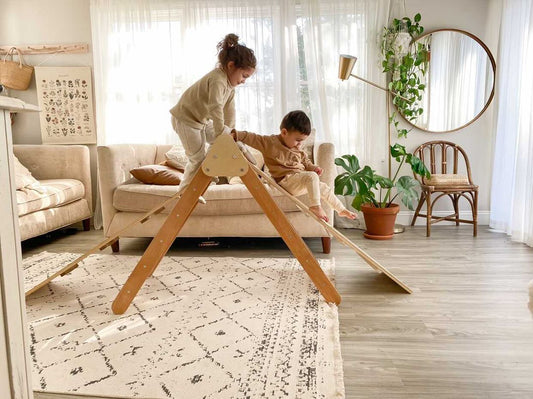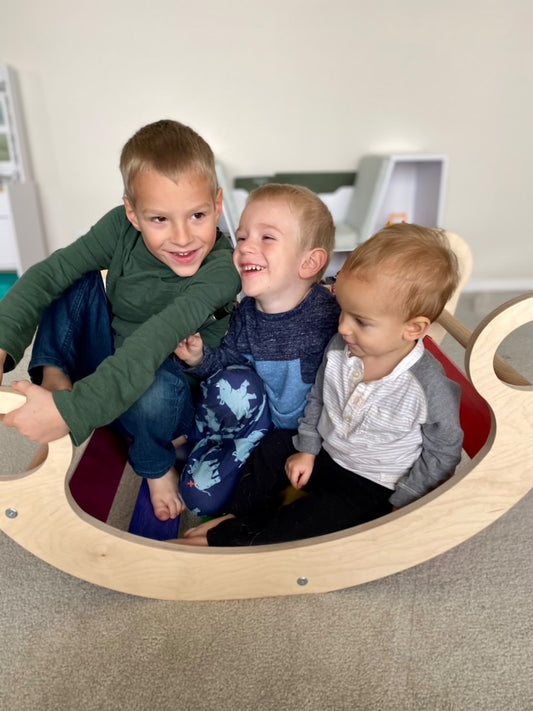In today's fast-paced society, children's lives are frequently packed with planned activities and ongoing entertainment. Sometimes, they need more time between screen time and organized playdates. What if, however, we told you that allowing children to play, explore, and dream independently can fundamentally alter how they develop? This blog will discuss the value of free play and how it might help kids develop independence.
1. Unleashing Creativity
Unstructured play, or what some might call "free play," is like a blank canvas waiting to be painted with the vivid colors of a child's imagination. When kids have the space to create and invent, they learn to think outside the box. Whether building towering structures with blocks or creating intricate worlds with open-ended toys, these experiences encourage creative thinking.
2. Problem Solving and Decision Making
Open-ended toys that don't come with a strict rulebook are the perfect tools for children to exercise their problem-solving skills. When there's no one telling them what to do, they need to figure things out on their own. This process of trial and error helps them develop essential decision-making abilities and resilience in the face of challenges.
3. Building Confidence
When kids engage in unstructured play, they take the reins and become the architects of their adventures. This autonomy builds their self-esteem and confidence as they realize they can make things happen and bring their ideas to life. Encouraging independence at an early age can set the stage for confident, capable individuals in the future.
4. Social Skills
While independent play is essential, it's also a stepping stone to developing strong social skills. Children with self-directed play experience are often more adaptable in group settings. They learn to negotiate, cooperate, and share with others, vital skills for forming positive relationships.
5. Emotional Regulation
Independent play allows kids to explore their feelings and develop emotional intelligence. When in charge of their playtime, they learn to manage their emotions and understand how to cope with frustration or disappointment. These are critical life skills that can benefit them well into adulthood.
6. Reducing Overstimulation
Children are prone to Overstimulation in a society where screens, notifications, and other stimuli are everywhere. Unstructured play gives youngsters respite from this sensory overload, enabling them to relax, concentrate, and recover.
In our quest to provide the best for our children, we sometimes forget that the best thing we can offer is the gift of space and time for independent play. Open-ended toys and unstructured playtime are potent tools for fostering independence in children. These experiences allow them to develop creativity, problem-solving skills, confidence, and social abilities. In today's busy world, it's crucial to remember that sometimes, less is more, and the space we give our children can be the canvas upon which their bright futures are painted.




